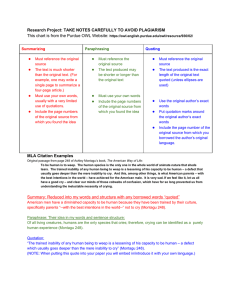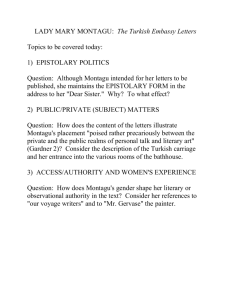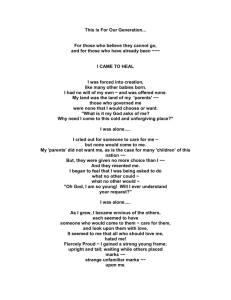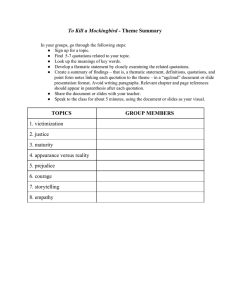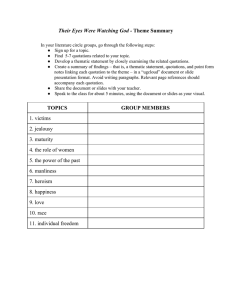Document 15543353
advertisement
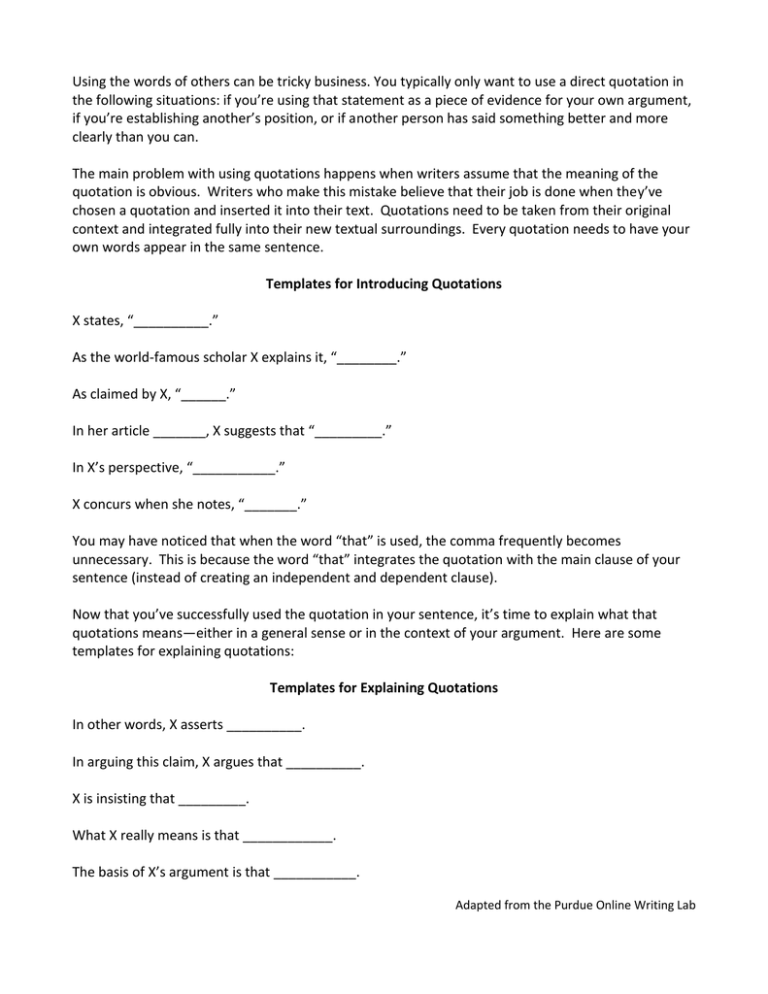
Using the words of others can be tricky business. You typically only want to use a direct quotation in the following situations: if you’re using that statement as a piece of evidence for your own argument, if you’re establishing another’s position, or if another person has said something better and more clearly than you can. The main problem with using quotations happens when writers assume that the meaning of the quotation is obvious. Writers who make this mistake believe that their job is done when they’ve chosen a quotation and inserted it into their text. Quotations need to be taken from their original context and integrated fully into their new textual surroundings. Every quotation needs to have your own words appear in the same sentence. Templates for Introducing Quotations X states, “__________.” As the world-famous scholar X explains it, “________.” As claimed by X, “______.” In her article _______, X suggests that “_________.” In X’s perspective, “___________.” X concurs when she notes, “_______.” You may have noticed that when the word “that” is used, the comma frequently becomes unnecessary. This is because the word “that” integrates the quotation with the main clause of your sentence (instead of creating an independent and dependent clause). Now that you’ve successfully used the quotation in your sentence, it’s time to explain what that quotations means—either in a general sense or in the context of your argument. Here are some templates for explaining quotations: Templates for Explaining Quotations In other words, X asserts __________. In arguing this claim, X argues that __________. X is insisting that _________. What X really means is that ____________. The basis of X’s argument is that ___________. Adapted from the Purdue Online Writing Lab MLA In-text Citations Original passage from page 248 of Ashley Montagu’s book, The American Way of Life: To be human is to weep. The human species is the only one in the whole world of animate nature that sheds tears. The trained inability of any human being to weep is a lessening of his capacity to be human – a defect that usually goes deeper than the mere inability to cry. And this, among other things, is what American parents – with the best intentions in the world – have achieved for the American male. It is very sad. If we feel like it, let us all have a good cry – and clear our minds of those cobwebs of confusion, which have for so long prevented us from understanding the ineluctable necessity of crying. Now look at the various ways you can use the opinion expressed in the passage. Montagu claims that American men have a diminished capacity to be human because they have been trained by their culture not to cry (248). In his book The American Way of Life, Ashley Montagu writes, “The trained inability of any human being to weep is a lessening of his capacity to be human – a defect which usually goes deeper than the mere inability to cry” (248). According to Montagu, “To be human is to weep” (248). “If we feel like it,” writes Montagu, “let us have a good cry – and clear our minds of those cobwebs of confusion which have for so long prevented us from understanding the intellectual necessity of crying” (248). One distinguished anthropologist calls the American male’s reluctance to cry “a lessening of his capacity to be human” (Montagu 248). Montagu finds it “very sad” that American men have a “trained inability” to shed tears (248). When my grandfather died, all the members of my family – men and women alike – wept openly. We have never been ashamed to cry. As Montagu writes, “to be human is to weep” (248). I am sure we are more human, and in better mental and physical health, because we are able to express our feelings without artificial restraints. Montagu argues that it is both unnatural and harmful for American males not to cry: To be human is to weep. The human species is the only one in the whole world of animate nature that sheds tears. The trained inability of any human being to weep is a lessening of his capacity to be human – a defect that usually goes deeper than the mere inability to cry…. It is very sad. (248) Adapted from the Purdue Online Writing Lab
